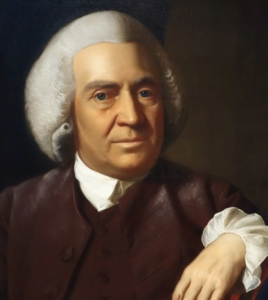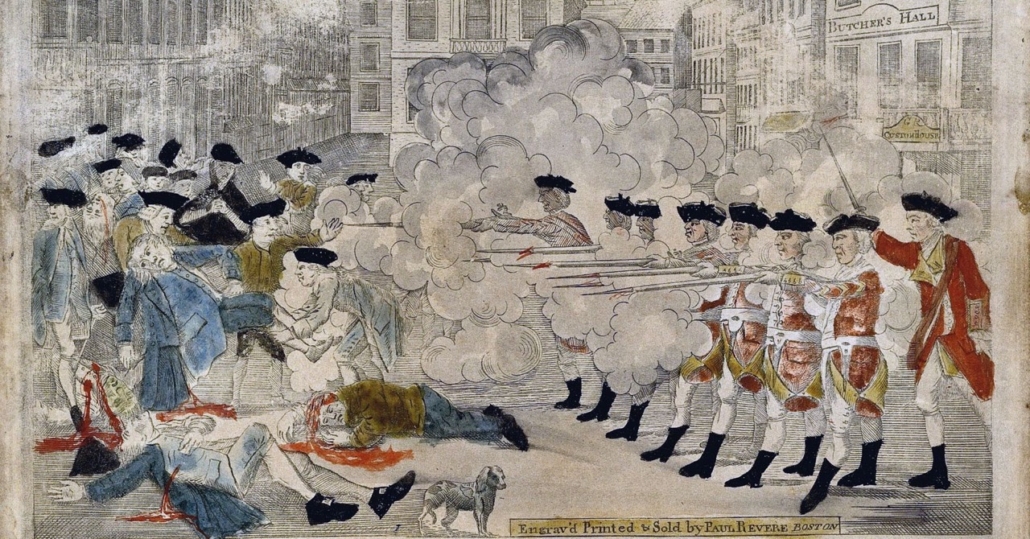Up and Down the Kennebec Valley: More China lawyers

by Mary Grow
On May 15, this series profiled three 19th-century China lawyers, Abisha Benson (practiced in China Village in the 1820s); Alfred Fletcher (born in 1817 or 1818, practiced in China, probably China Village, died in 1868); and Sanford Kingsbury (born in 1782, probably practiced in the southern part of China [given connections with Gardiner], died in 1849).
This article will introduce eight more men who practiced law in or around the town of China in the 19th century.
* * * * * *
The Greeleys or Greelys were early settlers in Branch Mills, the village on the west branch of the Sheepscot River shared between China and its eastern neighbor, Palermo. The China bicentennial history says Jacob Greely was a Revolutionary War veteran who moved to China after 1782.
Millard Howard, in his extensively researched 2015 history of Palermo, wrote that the China history probably referred to Jacob Greeley, Sr. (1739 -1820). Howard found that in 1777 Jacob Greeley Jr. (Aug. 22, 1762 – Aug. 3, 1838, according to WikiTree) settled near Beech Pond (a small pond northwest of Sheepscot Lake, on the north side of Route 3).
But, Howard wrote, Jacob Jr. was too young to own property legally. Howard surmised that Jacob Sr., whom he described as active in the Revolutionary movement in Newcastle, put the land in his son’s name to provide a safe inland refuge in case the British won.
Jacob Jr.’s, son, Jose (1798 – 1884), was a Branch Mills businessman. FamilySearch says Jose and his wife, Anna (Hacker), had three daughters and a son they named Josiah Hacker (May 23, 1826 – March 12, 1896. James W. Bradbury, in his chapter on lawyers in Henry Kingsbury’s 1892 Kennebec County history, wrote that in 1856, Josiah H. “was admitted to the bar at St. Paul, Minnesota.”
Bradbury also said that Josiah H. “was admitted to practice in Kennebec county” in 1867. The China history and Milton E. Dowe’s 1954 Palermo history suggest he was back in Branch Mills before then: both cite an 1859 Palermo business directory with listings including four Greelys (spelled without the second e).
J. and J. H. (presumably Jose and Josiah H.) were “Manufacturers of Lumber, Flour and Millowiers.” (Any reader who knows what a millowier is or was is invited to contact The Town Line. The reference is a copy of a copy, so a typographical error is possible.)
J. H. was listed separately as “Counsellor and Attorney at Law.”
And Jonathan Greely was listed as “Counsellor and Attorney at Law, Dealer in Stock.” (Your writer suspects livestock, not financial instruments, although the New York Stock Exchange originated in May, 1792, Wikipedia says.) Howard identifies Jonathan as Jacob Jr.’s, brother and says he worked with the Kennebec Proprietors in 1802 and 1809, sorting out land claims. Your writer found no more information about this lawyer.
Josiah Greely (no e) is listed as a China selectman in 1857 and from 1858 through 1861, according to the China history. Bradbury added that he was a state representative in 1861.
As with most of the lawyers your writer has been describing, information about Greely’s practice is non-existent. The China history tells a story from his days as a selectman, however.
In 1861, for the first time, the annual China town report listed delinquent taxpayers, as of 1859, by name and amount owed. The lowest amount that earned dishonorable mention was $1.98, the highest $11.88.
The man who owed $11.88 on his farm did not pay up. On April 27, 1861, the history says, selectman Greely bought the property “‘for the inhabitants of the town of China” for $15.88, the amount due for back taxes and the expenses of the auction.”
* * * * * *
Washburns were numerous among early settlers in China Village, while the area was still part of Albion. Bradbury listed one them, Zebah (sometime Zeba), “a son of Zalmunah,” as a lawyer.
The China history says Japheth Washburn and his son, Japheth Coombs Washburn, arrived in 1804. The Washburn genealogy included in the history shows a Zalmuna (September 11, 1772 – Sept. 7, 1844), older brother of Japheth Coombs (Jan. 20, 1780 – Aug. 29, 1850).
When the Town of China was organized in February 1818, Japheth C. was elected the first town clerk, and his brother, Zalmunna/Zalmuna, was the first treasurer/tax collector and one of the first nine school agents.
This Zalmuna married Deborah Benson. The oldest of their eight children was Zebah, born Jan. 26, 1797, in Wayne; died April 12, 1888, in China; buried in China Village cemetery.
Bradbury said Zebah Washburn “practiced law until he was seventy years old.” The China history says he also served as cashier of the China Bank, in China Village (1853 – 1855) and the Canton Bank, in South China (1855 – 1856).
(The history says the China Bank attracted only $300 in local deposits, so the state banking commission advised liquidating it “even though it was in good financial condition.” Its successor is described as “spectacularly unsuccessful.”)
Your writer has failed to find details about Zebah Washburn’s legal practice. She deduces it did not provide him enough income, because Ruby Crosby Wiggin’s 1964 history of Albion lists Zeba(h) Washburn as getting a liquor license for his store annually from 1821 to 1824; and as owning a potash factory (undated) with his brother, Zalmunnah, at Puddle Dock, the nineteenth-century industrial center southeast of the present-day village.
* * * * * *
Jacob Smith is named in the China bicentennial history as a 19th-century China Village lawyer. Bradbury said Smith sent him (Bradbury) his first client, around 1830; and “later” (unspecified) was a municipal court judge in Bath.
On-line records include two documents, from February 1838 and August 1839, naming a Jacob Smith (not proven to be the same man) as the court clerk in Wiscasset; and a March 13, 1868, petition “recommending the reappointment of Jacob Smith to be the judge of the Municipal Court in the City of Bath.”
(The 1838 document, which Smith attested in his capacity as clerk, was a petition to the county commissioners to make Roland Fisher the new ferryman “due to a change in ownership of the property in Georgetown where the ferry’s run originated”; and to lower the ferry rates. There were 20 signatories.
(A ferry from Georgetown currently runs to McMahan Island in July and August, “for islanders and their renters/visitors only,” according to the island’s website.)
* * * * * *
Bradbury’s list of area lawyers included three related Warrens. He wrote that George was the son of “General Warren and the celebrated Mercy Warren, daughter of James Otis, of Barnstable”; Samuel S., who practiced briefly in China, was “a nephew of General Warren, of Bunker Hill fame”; and Ebenezer T. was Samuel’s brother.
Bradbury was apparently talking about two different General Warrens. The one who married Mercy Otis was James (Sept. 28, 1726 – Nov. 28, 1808); he was paymaster in the Continental Army and later a Massachusetts politician. Wikipedia names George (1766–1800) as the youngest of their five sons.
The Bunker Hill General Warren was Joseph (June 11, 1741 – June 17, 1775). He was a doctor and a major-general in the Massachusetts militia; volunteering to fight at Bunker Hill, he was killed in action.
General Joseph Warren had three brothers, Samuel, Ebenezer and John. WikiTree says Ebenezer’s sons – the General’s nephews — included Ebenezer Tucker Warren (born in Hallowell Sept. 11, 1779; died about Sept. 1, 1830) and Samuel Stephens (or Stevens) Warren (born April 14, 1793, in Foxborough, Massachusetts; died Sept. 26, 1881, in Wrentham, Massachusetts).
Bradbury called George Warren “one of the lesser lights of the Kennebec bar,” a man who “possessed fine natural talents, but led a dissipated life, dying in Augusta in penury.” He practiced in Winslow before Waterville became a separate town in June 1802.
Rev. Edwin Carey Whittemore, in his centennial history of Waterville, said George Warren was “Winslow’s first lawyer,” in practice by 1791, and the town’s representative to the Massachusetts legislature in 1791 and 1792.
Bradbury wrote that Samuel S. Warren began his law practice in Hallowell before 1825. About 1835 he moved to China, from there to Albion and about 1844 to Massachusetts.
An on-line source names one of his law students in China as a 17-year-old from Albion named Artemas Libby, who later studied with “Z. Washburne”; was admitted to the Kennebec bar at 21 in 1844; and served as associate justice of the Maine Supreme Court from April 23, 1875, until he died Aug. 15, 1894.
Kingsbury lists S. S. Warren as a China selectman in 1832. Warren is not on the list of selectmen in the bicentennial history.
Samuel’s brother Ebenezer, Bradbury said, had a law practice in Hallowell around 1824 and later was president of a Hallowell bank.
A Vaughan family papers website says Ebenezer Warren was born in Foxborough, Massachusetts, in 1779. He earned a bachelor’s degree from Harvard in 1800 and a master’s in 1803, and lived in Hallowell from the time he married Abiah Morse. The wedding date is not specified, but the couple had a daughter born in 1810 and a son born in 1816.
Warren “was a lawyer, federal county attorney for Kennebec County, a justice of the peace, and a Massachusetts senator in 1816,” the website says. He was also president of two banks and from 1821 to 1830 an overseer of Bowdoin College.
He died suddenly in 1830, in Quincey, Illinois, while he was “inspecting soldiers’ land claims,” the Vaughan papers say.
* * * * * *
Newell Washburn Brainerd grew up in China, one of two sons and two or three daughters of a China Village merchant named Fredus Oldridge Brainerd (Dec. 15, 1831 -May 9, 1900) and his wife Maria (Washburn) (Jan. 26, 1832 – March 31, 1895), attorney Zeba/Zebah Washburn’s daughter.
Newell Brainerd’s November, 1900, obituary, pasted on his Find a Grave page (not including the name or location of the newspaper in which it was published; content suggests the paper covered Skowhegan), says he was born Aug. 20, 1860, in Black River Falls, Wisconsin, whence his parents moved to China “in his early childhood.” FamilySearch says he was born in 1860 in Milburn, Maine (now Skowhegan).
Both agree he attended China Academy in the early 1870s; the obituary on Find a Grave says he graduated. In February 1883 he was its principal, with his sister Estelle or Estella, four years his senior, as his assistant, the China history says.
Brainerd’s obituary adds a second graduation, from Oak Grove Seminary, in Vassalboro. The obituary and Bradbury agree that Brainerd studied law under E. F. Webb, in Waterville; gained admittance to the bar in 1886; and began practice in Fairfield that year, soon adding a Clinton office.
In November 1890, Bradbury said, Brainerd moved to Skowhegan. The obituary explains that he was elected Somerset County clerk of courts, a position he held for 10 years with success enough to be re-elected in September 1900.
On Jan. 15, 1887, FamilySearch says, Brainerd married Flora T. Brown (born in Fairfield April 13, 1860; or April 13, 1859). His obituary calls her Flora T. Lawrence and refers to her son Fred Lawrence; her obituary, on a separate FamilySearch page, says her first husband, Charles P. Lawrence, died in 1881.
The Brainerds had two (Find a Grave) or three (FamilySearch) daughters, Marion, born April 19, 1888, and twins Edith and Ethel born Jan. 11, 1890. Marion, listed on FamilySearch but not on Find a Grave, died in 1967 in Gardiner.
Edith died in September 1890; Ethel died Jan. 26, 1935, in Cincinnati, Ohio.
The obituary says nothing about Brainerd as a lawyer, but reports he was “for many years a trial justice.” He was active in the Methodist Church, helping with Sunday school and serving on the board of Island Avenue Methodist Church.
“He was an obliging and very competent official, a Christian gentleman, a respected and honored citizen. He has many sincere and warm friends, particularly in Somerset county, where he served the public so faithfully,” the obituary writer summarized.
This source said Brainerd had been in ill health for five years, and died in Massachusetts General Hospital at 5 a.m. Friday, Nov. 9, 1900, aged 40. He had had a necessary operation a few days earlier and failed to recover.
His body was returned to Skowhegan, where, after a well-attended service, he was buried in Southside cemetery. His widow, Flora, died Oct. 19, 1847, and is buried with her husband and daughters Ethel and Edith.
Main sources
Grow, Mary M., China Maine Bicentennial History including 1984 revisions (1984).
Howard, Millard, An Introduction to the Early History of Palermo, Maine (second edition, December 2015)
Kingsbury, Henry D., ed., Illustrated History of Kennebec County Maine 1625-1892 (1892).
Websites, miscellaneous.
CORRECTION: The photo in last week’s issue was not the Augusta, Maine, jail. It was an editing error.
Responsible journalism is hard work!
It is also expensive!
If you enjoy reading The Town Line and the good news we bring you each week, would you consider a donation to help us continue the work we’re doing?
The Town Line is a 501(c)(3) nonprofit private foundation, and all donations are tax deductible under the Internal Revenue Service code.
To help, please visit our online donation page or mail a check payable to The Town Line, PO Box 89, South China, ME 04358. Your contribution is appreciated!




Leave a Reply
Want to join the discussion?Feel free to contribute!